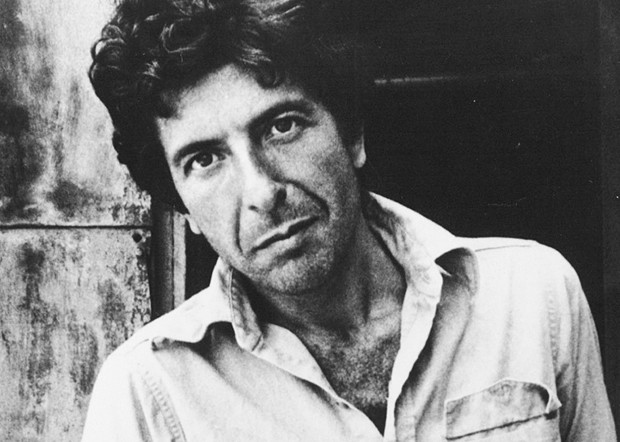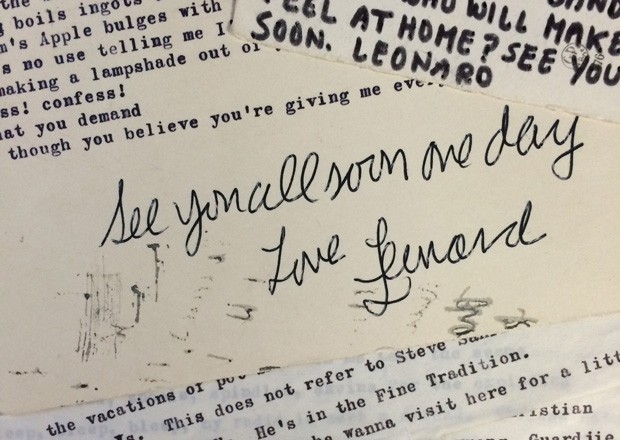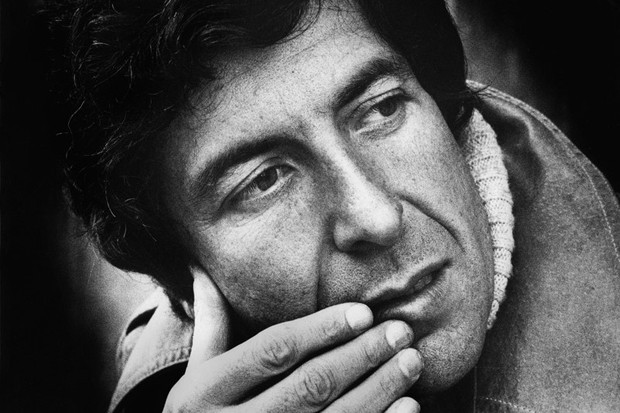Leonard Cohen (1934-2016): 'He articulated our sense of confusion, heartbreak and joy'

…the art of losing’s not too hard to master though it may look like (Write it!) like disaster.
So says Elizabeth Bishop in “One Art”, speaking, as all great poets do, of both her own loss, and of ours, whatever it may be.
This was a gift shared by her fellow writer, Leonard Cohen, who (Write it!) died this week.
Observer reporter Ed Vulliamy recalled seeing Cohen at a concert in 1970 at the aptly named Devastation Hill on the Isle of Wight. Cohen asked his audience, all 600,000 of them, to light a match so that “a sea of little flames illuminated the night … as far as the eye could see.”
His music had much the same effect.
 Image courtesy of Concordia Library Special Collections
Image courtesy of Concordia Library Special Collections
Cohen once chastised Martin Amis for a mean-spirited comment about the music of Simon and Garfunkel.
“That might be the song that gets someone through a dark hour,” he said.
And there was always a sense, listening to his albums, that Cohen’s songs were born out of his own dark hours. He never stood outside the maelstrom, but was right there, battling it alongside us, articulating on our behalf — in precise, elegant, witty language — our sense of confusion, of heartbreak and of joy.

What I admired most about Leonard Cohen was not only his craft, and his compassion, but how hard he worked at both. The true artist always has, and should.
Bob Dylan saw Cohen as his nearest rival. Some of us viewed it the other way around. On the doorstep of Cohen’s Montreal home last night, candles were once more lit and a crowd gathered. English and French, young and old. Jew and Christian.
I hope that this is a legacy — as an artist, as a man and as a Montrealer — he would cherish.
Kate Sterns is an associate professor of English in the Faculty of Arts and Science.
Leonard Cohen: look
The Concordia Library Special Collections contain a wealth of Leonard Cohen material, including a lecture by Irving Layton and postcards (see above) and letters sent between the two friends.
You'll find them in Room VL-121 of the Vanier Library.
Leonard Cohen: listen
Kate Sterns' favourite song? "Dance Me to The End of Love."
The song begins almost uncertainly (the live version especially), like a bashful boy at a Jewish wedding, and then it seems to make up its mind, takes your hand and sweeps you inexorably, elegantly along.
It's the sexiest song ever written.
Leonard Cohen: read
English literature student Melanie Power wrote this tribute poem:
Hallelujah
Leonard, I came as soon as I could– only to find
a handmade vigil already
burning for you. Your front step
decked in candles & a small banner reading:
“Hallelujah,” in praise of unmarked Gods,
Messiahs not described in Bibles. I wonder, idle,
who rites like these serve. I am as large
as alone tonight, I stand apart from
the intimate mass in
silent execution. Leonard, you said it once
in song and because
my poetry is merely a pool,
that reflects an image of you, here it is.
Here I stand. Leonard,
I’m your man. It is nearly midnight,
striking the 11th of November. I stand here
now, in testament to a black-eyed red flower &
symbols of armistice. The crowd has
stopped its talking, wordless to remember yours
best. Their aches seem too dry
to secrete water, for they’re pouring
Boréale after Boréale on them. Their elements
of remembrance share flavours: blanche, amber,
rousse. Others tip flasks to their lips
in more direct forms of sadness. Leonard,
you’ve got the whole Plateau smoking again. How
the smell of cigarettes makes the addict
in me restless, as restless as these
fans, the loneliest of whom will soon fall
into the sheets of beds of old lovers
on nights as hard as these, I think. Oh, Leonard,
did you know when I first moved here,
naive, nineteen, I always thought
I’d run into you on some street corner? I searched
Marie-Anne and St. Laurent for a sign of you.
Brunch at Bagel Etc. on weekends, eggs
over easy, bacon, rye toast. I read most of
your books in Parc du Portugal one summer,
the Montreal heat hotter even than your perverted
scripture. I wait now, futile, for a message from you,
and even our lady
of the harbour has no news to offer of you. A gust
picks up in the park, knocks off
some yellow leaves and blows
those porch candles out. I walk away,
smiling. Leonard,
you know I cannot stand the dark.


